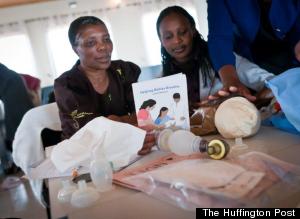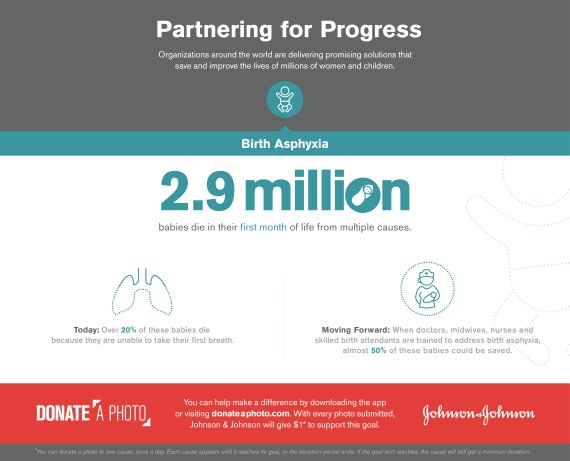What can some people accomplish in one minute? Some can put away their shoes or read 250 words. With the right training, some are able to save a newborn's life.
"Save a life?" you ask.
Indulge this author and hold your breath while you read this article.
(Take a deep breath and start now.)
Every year around the world, almost 700,000 babies born in low- and middle-income countries die from birth asphyxia, or an inability to breathe at birth--something that rarely happens in high-income countries.

Many of these infants could be saved if a health provider skilled at neonatal resuscitation is present during labor and childbirth. And yet, 40 million women globally give birth accompanied by their mothers, sisters, or aunties instead of trained health care providers who could intervene if complications arise. More than 2 million women give birth completely alone.
(Are you still holding your breath? You're doing great. About 25 seconds have passed.)
Giving birth without a skilled birth attendant leaves both mothers and newborns without the specialized medical care that's most critical when their lives are at greatest risk. An estimated 1 in 10 infants will struggle to breathe at birth.
There is one "golden minute" of opportunity for a baby to start breathing well. For an infant who is not breathing at birth, perhaps she feels like gasping for air, or maybe her heart rate is increasing to continue bringing oxygen to the brain and tissues. (If you are still holding your breath, you might be feeling this, too. About 45 seconds have passed since you started reading. Many readers won't be able to hold their breath that long.)
In one "golden minute," a newborn must be assessed. If the baby is not breathing, stimulation and assisted ventilation can save a life. But this is only possible if there is a skilled attendant by the mother's side.
For most readers, it took about one minute to read the words contained within this article--one golden minute since you started holding your breath. (You can exhale now!)
Additional skilled birth attendants could help more babies survive childbirth and take their first breath of life. The techniques are simple--like rubbing a baby's feet, keeping him or her warm, and using a ventilator if needed. Birth attendants could be trained to spot the signs--and intervene--in one short minute.
Helping Babies Breathe (HBB) is a neonatal resuscitation curriculum designed to provide birth attendants with the skills to resuscitate babies--especially those born in settings where resources are scarce. This partnership between Johnson & Johnson, Save the Children, the American Academy of Pediatrics, AMREF, and USAID in Malawi, Uganda, and Kenya has trained more than 600 health care providers in its first two years.
What can you accomplish in one minute? You could give someone a hug--and, if you are trained in HBB, you could save a baby's life.
You can also help save the lives of women and children around the world just by uploading a photo.
For every photo you upload using the free Donate A Photo app, Johnson & Johnson donates $1 to the organization of your choice. Partners include Save the Children, World Wildlife Fund, CARE, and MAMA.
Choose a photo that is inspired by your hopes and dreams for women and children around the world.
This blog is part of a month-long series in partnership with Johnson & Johnson to highlight the successes and remaining opportunities in the Every Woman Every Child movement. With the aim of improving the lives of women and child around the world, EWEC was launched by UN Secretary General Ban Ki-moon in 2010 to accelerate progress against the Millennium Development Goals (MDGs). To learn more, click here.
Helping Babies Breathe (HBB) is an evidence-based educational program to teach neonatal resuscitation techniques in resource-limited areas. It is an initiative of the American Academy of Pediatrics (AAP) in collaboration with the World Health Organization (WHO), US Agency for International Development (USAID), Saving Newborn Lives, the National Institute of Child Health and Development, and a number of other global health organizations
